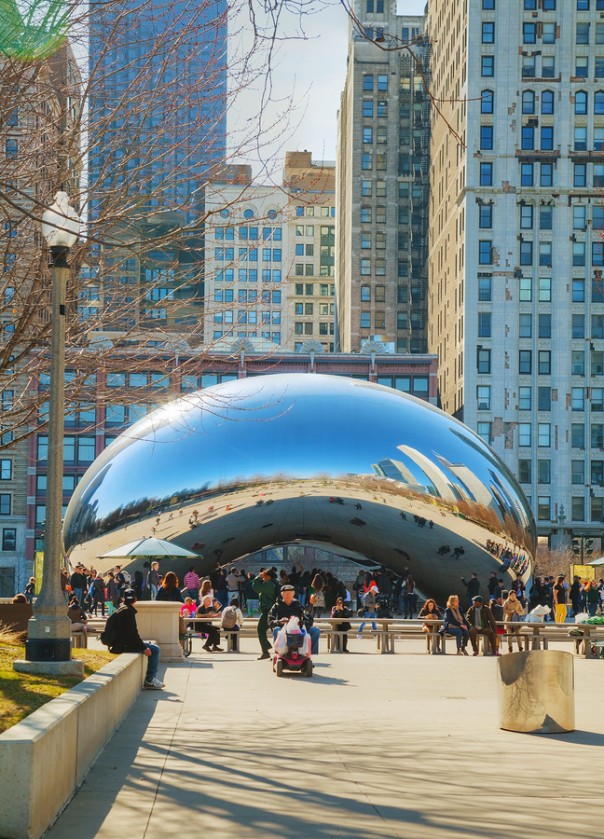My wife and I are having a really stressful week.
You see, she has taken up curling (you know, the Olympic sport that looks like shuffleboard on a hockey rink), and she’s practicing like mad for a big tournament. Meanwhile, over at the improv comedy club, I’m coaching nine amateur comedians for their upcoming performance at a local coffee house. Between chasing stones on ice and doing terrible celebrity impressions, whew — things are tense.
I kid. In all seriousness, our lives are full of legitimate stress. We are raising two children together; I regularly face the nail-biting anxieties of veterinary practice; and my wife puts in long hours toward tenure as a college professor. We work our faces off trying to be good parents and professionals and spouses. We have very little free time, and — just like you — we have plenty of grownup responsibilities weighing on us.
Still, we make time regularly to do these two ridiculous things: curling and comedy. Crazy, right?
Well, no. It’s not so crazy. And here’s why:
One of the greatest traps I see people in the veterinary field fall into is allowing their lives to become a tightrope pulled between home and clinic. They go from one of these places to the other and back again, in an endless cycle, until they feel pulled thin and run down.
When this happens, it becomes difficult to recharge and refresh. People start to feel as if they’ve lost the nuances of their identities and can’t quite get perspective on anything. If they’re not in one place, they’re in the other, and the back-and-forth tension is never relieved. That’s why two places isn’t enough. They need a third place.
Let me explain: The term “a third place” is commonly used in city planning and community building to indicate places and locations outside the home (“the first place”) and the workplace (“the second place”) where people gather to socialize.
indicate places and locations outside the home (“the first place”) and the workplace (“the second place”) where people gather to socialize.
In 1989, a man named Ray Oldenburg published The Great Good Place, which would become a classic text in the field of community building. In this book, Oldenburg argues that third places (like barber shops, cafes, clubs, parks, etc.) are vital for creating a sense of community. That is, third places allow people to engage in ways unrelated to their home or workplace, and those interactions make people feel like they have meaningful, fun ties to others and belong to something greater than themselves. Lots of books and articles have been written about the importance of third places to our social fabric.
[tweetthis]Practice and family are not enough. Here’s why.[/tweetthis]
In our line of work, a third-place is anywhere we can engage with people who are not in our families or our veterinary practices, to talk about or do something unrelated to veterinary medicine. For me, it’s a public library, where I go to practice comedy. For my wife, it’s the local ice rink, where she cultivates her skill in a quirky sport. A practice manager I just met, who’s very busy between her work and her children, makes time to hit the rock climbing gym regularly. One of our technicians goes to comic conventions whenever she can. A front desk staffer plays in a band. It’s amazing how having a “third place” to go can actually reduce stress and improve happiness.
 In fact, I think making a third place into a third priority (after home and work, of course) just might save our sanity. I’m not advocating for skipping out on patients or missing important family moments to practice kung fu, but I do think it’s worthwhile to find something that can be prioritized after family and work and before pretty much everything else. (You know, putting the oxygen mask on yourself before helping others.)
In fact, I think making a third place into a third priority (after home and work, of course) just might save our sanity. I’m not advocating for skipping out on patients or missing important family moments to practice kung fu, but I do think it’s worthwhile to find something that can be prioritized after family and work and before pretty much everything else. (You know, putting the oxygen mask on yourself before helping others.)
It is so easy to decide we’re too busy to make time for ourselves — to say “no” to hobbies, outlets, and activities that could enrich our lives and alleviate some of the home/work tension. I’d like to see more people say yes to a third thing, a third priority, a third-place of fun, learning, mutual interest, or community. Maybe even something as crazy as curling or comedy.
[tweetthis]It is easy to decide we’re too busy to make time for ourselves — to say “no” to hobbies[/tweetthis]
Do you have a third place? If not, I hope you’ll consider finding one.